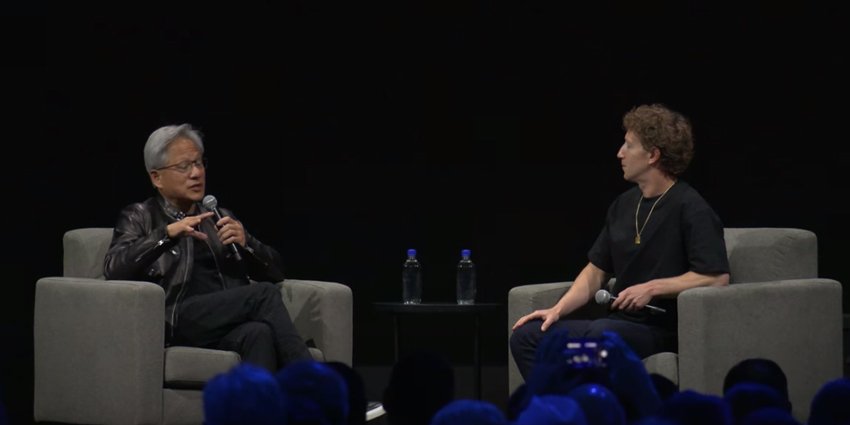At SIGGRAPH 2024, NVIDIA CEO Jensen Huang and Meta CEO Mark Zuckerberg shared their bold vision of a future where AI is integrated into every aspect of business operations. In their fireside chat, both leaders emphasized the transformative potential of open-source AI and virtual assistants.
Meta Unveils AI Studio to Democratize AI Creation
Zuckerberg kicked off the conversation by announcing AI Studio, Meta’s latest platform aimed at making AI development accessible to a broader audience. This platform allows users to create, share, and discover AI characters, empowering millions of creators and small businesses to explore AI solutions.
AI’s Role in Every Business
Huang stressed the inevitable rise of AI across industries, stating, “Every single restaurant, every single website will probably have these AIs in the future.” Zuckerberg agreed, adding that AI will soon be as essential as having a website or a social media presence, predicting that “every business is going to have an AI.”
NVIDIA’s ‘James’ and Hyperrealistic Virtual Assistants
During the event, NVIDIA showcased “James,” a cutting-edge digital human built on the NVIDIA ACE (Avatar Cloud Engine). This virtual assistant exemplifies the potential for businesses to create hyperrealistic avatars capable of contextually accurate interactions, paving the way for more engaging customer service solutions.
Meta’s Contributions to Open-Source AI
Huang praised Meta’s leadership in AI development, particularly highlighting Meta’s advancements in computer vision, language models, and real-time translation. Meta’s open-source efforts, including the release of Llama 3.1 with its 405 billion parameters, underscore the company’s commitment to AI innovation. The training of Llama 3.1 on over 16,000 NVIDIA H100 GPUs illustrates the immense resources invested in pushing AI boundaries.
Unified AI Models for Platforms
Zuckerberg expressed his vision for integrated AI models, imagining a future where platforms like Facebook or Instagram could function as a single AI model, seamlessly unifying various content types. He believes collaboration is key to achieving breakthroughs in AI technology.
AI Boosting Productivity and Immersive Experiences
Huang also described a future where AI enhances human productivity, allowing for real-time image generation as users type. This vision aligns with NVIDIA’s enhancements to the NVIDIA Maxine AI platform, including tools like Maxine 3D and Audio2Face-2D, which aim to create more immersive telepresence experiences for users.
Zuckerberg also highlighted the potential of combining AI with augmented reality (AR) eyewear. Meta’s collaboration with Luxottica could revolutionize fields like education, entertainment, and work through AR technology.
Advanced AI Interactions
Huang discussed how AI interactions are evolving, moving beyond simple turn-based responses. Future AI could simulate multiple outcomes and provide users with a tree of options, making AI much more powerful and adaptable.
AI Adoption Across Industries
The integration of NVIDIA ACE and Maxine technologies into industries like entertainment, retail, and hospitality further highlights the growing reliance on AI. Companies such as HTC, Looking Glass, and UneeQ are already using NVIDIA’s AI solutions to enhance customer service and create immersive experiences.
The Future of AI is Here
The advancements displayed at SIGGRAPH 2024 by both NVIDIA and Meta illustrate that a future where AI assistants are as common as websites and social media accounts is fast approaching. Digital humans are becoming more sophisticated, offering businesses new ways to engage customers and streamline operations.
As AI technology continues to evolve, businesses of all sizes must prepare for a future where AI integration is not just a luxury but a necessity for staying competitive.


